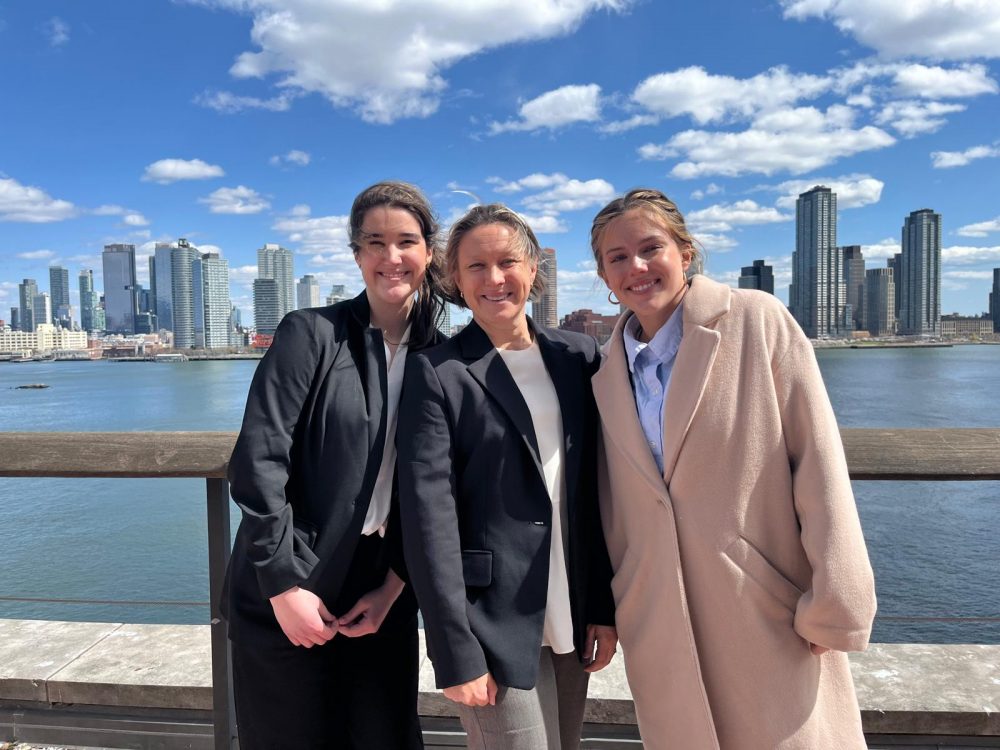
On April 8, 2025, Professor Rachel Chambers and graduate students Elizabeth Sullivan and Taylor Moran from the University of Connecticut’s Master of Science in Social Responsibility and Impact in Business (MSSRIB) program attended a landmark event at the United Nations Headquarters in New York City. The event marked the unveiling of a major new report by the Global Commission on Modern Slavery and Human Trafficking.
Held in the iconic Trusteeship Council Chamber, the high-level convening brought together world leaders, advocates, policymakers, and experts for a full day of dialogue and action planning aimed at eradicating one of the most urgent human rights challenges of our time: modern slavery.
“Attending the launch of a new report from the Global Commission on Modern Slavery and Human Trafficking was an incredibly inspiring experience,” said Professor Rachel Chambers. “The high-level opening session set a powerful tone, with distinguished speakers like Dr. Pierre-Justin Kouka (Executive Director of the Commission) and the Ambassadors of the UK and Bahrain to the United Nations emphasizing the urgent need for global collaboration.
Most impactful to us, however, were the testimonies of survivors of modern slavery. The networking session provided us with the opportunity to engage with experts like Professor Andrew Thompson, Professor of Global and Imperial History at Oxford University and Commissioner, whose words about the history of the Trusteeship Chamber at the UN caught our attention.”
For students in the MSSRIB program, the event served as a powerful bridge between academic study and real-world global policy. It also reinforced UConn’s commitment to cultivating the next generation of ethical and socially responsible business leaders — individuals prepared to tackle complex global challenges through a lens of human rights, sustainability, and justice. This event not only emphasized the importance of survivor-centered solutions but also spotlighted the critical role of ethical leadership and business accountability in ending modern slavery by 2030.
“The event offered a rare and powerful opportunity to hear from a range of influential voices—including successful politicians, academics, and business leaders. Most importantly, we had the privilege of listening to survivors of modern slavery share their lived experiences,” said graduate student Taylor Moran. “This experience left a lasting impact on me. It reinforced the importance of involving all stakeholders; especially those most affected by exploitative labor practices – in the conversation. True reform is only possible when every voice, particularly those on the front lines, is heard and valued.”
“The event was a very insightful experience. I am very grateful to have had this opportunity through the MSSRIB program and classes,” said graduate student Elizabeth Sullivan.
Learn More: